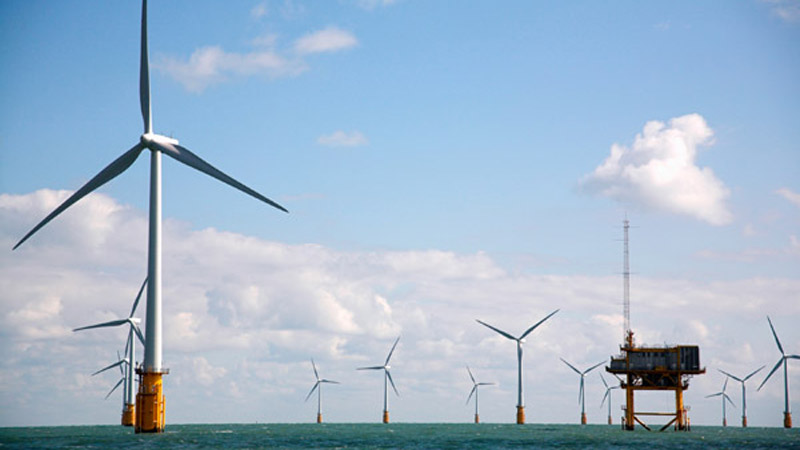Until the UK leaves the EU, it is taking part in Brussels policymaking as usual – including a clean energy package agreed on Tuesday.
But the energy department in Westminster has refused to say whether the government would stay committed to the targets it agreed after Brexit.
The package includes bloc-wide targets to slash energy waste 32.5% by 2030 and generate 32% of energy from renewable sources.
Member states, including the UK, are due to outline their national contributions by early 2019, to be negotiated and revised until the numbers add up. That horse-trading will continue after the UK is due to leave the EU in March, 2019.
Asked whether the UK would participate in this process after Brexit, a business, energy and industrial strategy (Beis) department spokesperson said: “We are looking carefully at the EU’s proposed renewable targets.”
A European Commission spokesperson also demurred, saying that would be part of the Brexit negotiations.
Barry Gardiner, shadow minister for international climate change, said the UK government “should at a minimum agree to uphold these targets after Brexit”.
If elected, the Labour Party would go further, Gardiner added. Its manifesto includes a push for 60% renewable energy target by 2030 and upgrading 4 million homes to a C energy rating.
If you like what we do, support us
Become a CHN patron for as little as $5 per month to help us keep bringing you the most in-depth coverage of climate politics and underreported stories from around the world.
We have set up a Patreon account. It’s a simple, safe and easy way for you to become part of a community that will secure and guide our future.
Thank you!
The government highlighted UK success in cutting greenhouse gas emissions more than 40% since 1990, while growing the economy by two thirds. Last year renewables generated 29% of electricity.
However, electricity is only part of the picture. Slow progress on greening heat and transport put the UK off pace for its 2020 renewable energy target. On both ambition and deployment, it lags behind the EU average.
In EU negotiations, the UK has consistently opposed setting renewable and energy efficiency targets, arguing for a “technology neutral” climate policy. Proponents of sector-specific targets, who won that battle in Brussels, say they give more confidence to green investors and businesses.
Alongside its EU commitments, the UK has a climate law that sets out a series of “carbon budgets”, leaving some flexibility on how to meet them. The independent Climate Change Committee has warned of “significant gaps” in the government’s clean growth strategy for next decade.
Gardiner said the strategy lacked detail on how to roll out household insulation, for example. “Government needs to come up with a programme of measures as to how that can be achieved. Until they do we can have no confidence that they are committed to playing their proper role in the European targets they have – however reluctantly – signed up to.”
Jonathan Gaventa, director at thinktank E3G in Brussels, said continuing to take part in the EU process was “not particularly burdensome” for the UK.
“What they will have to do is take the work in this clean growth plan and put it in this [EU] template, which is needed to have transparent comparisons between EU member states,” he said. “Even if the UK is not in this framework, it is a no-regrets step to do that planning.”
